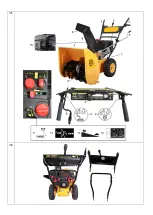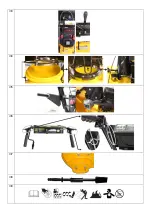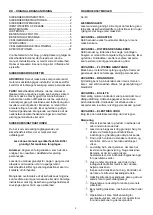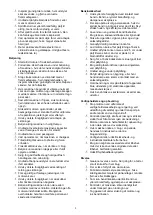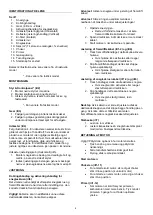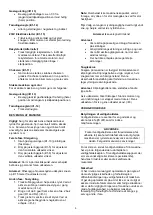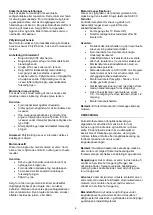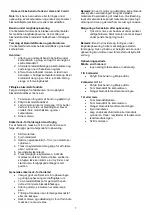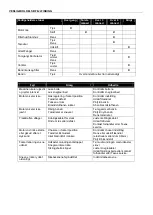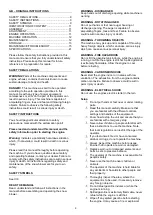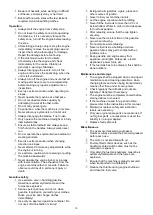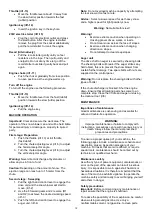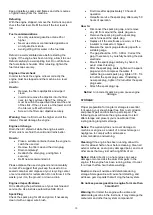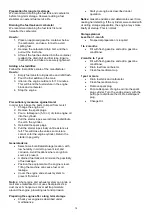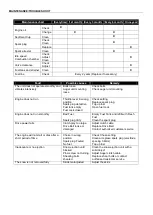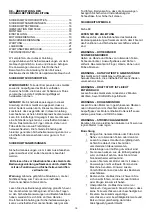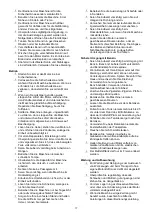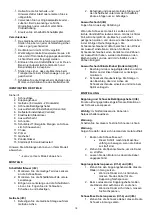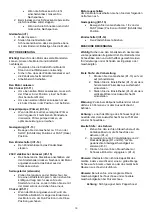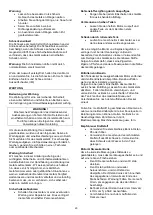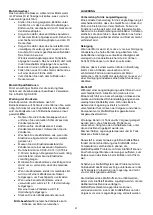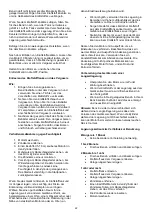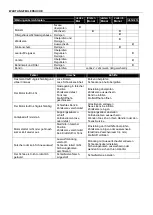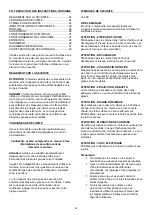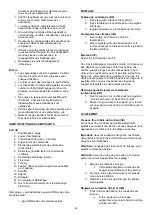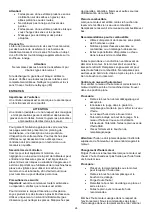
13
Keep cigarettes, sparks and flames and other sources
of ignition away from the machine.
Refueling
With the engine stopped, remove the fuel tank cap and
check the fuel level. Refill the tank if the fuel level is
low.
Fuel recommendations
Use only unleaded gasoline octane 95 or
higher.
Never use stale or contaminated gasoline or
an oil/gasoline mixture.
Avoid getting dirt or water in the fuel tank.
Refuel in a well-ventilated area before starting the
engine. If the engine has been running, allow it to cool.
Refuel carefully to avoid spilling fuel. Do not fill above
the fuel strainer shoulder. After refueling, tighten the
fuel tank cap securely.
Engine oil level check
In order to check the engine oil level correctly the
engine must be stopped and the machine in a level
position.
How to:
Remove the filler cap/dipstick and wipe it
clean.
Insert and remove the dipstick into the filler
neck to check oil level. Note: The Oil level
must be within the specified interval at the end
of the stick. If the oil level is at the lower end of
the interval, refill with oil SAE.
Screw in the filler cap / dipstick securely.
Warning:
Never refill oil over the higher end of the
interval, this will damage the engine.
Engine oil change
Drain the old / staled oil while the engine is warm.
Warm oil is more fluid then cold and drains better.
How to:
Place a suitable container below the engine to
catch the used oil.
Remove the filler cap and the drain plug.
Drain completely!
Reattach the drain plug, and tighten it
securely.
Refill new recommended oil.
Please dispose the used engine oil environmentally
correct. We suggest that you keep the used oil in a
sealed container and dispose at your recycling center
or service station for reclamation. Do not throw it in the
waste; pour it on the ground; or down a drain.
Engine oil specifications
Oil is affecting the performance of your machine and
service life. Use 4-stroke automotive SAE 30 oil.
Spark Plug
Check the spark plug for dirt and grime; if necessary
clean it with a copper wire brush.
First time after approximately 10 hours of
operation
Hereafter service the spark plug after every 50
hours of operation.
How to:
Disconnect the spark plug cap, and remove
any dirt from around the spark plug area.
Remove the spark plug with a spark plug
wrench. Inspect the spark plug.
Replace it if the electrodes are worn, or if the
insulator is cracked or chipped.
Measure the spark plug electrode gap with a
suitable gauge.
The gap should be 0.70 - 0.80 m. Correct the
gap, if necessary, by carefully bending the side
electrode.
Mount the spark plug carefully, by hand, to
avoid cross-threading.
After the spark plug seats, tighten with a spark
plug wrench to compress the water. If
reattaching a used spark plug, tighten 1/8 - 1/4
turn after the spark plug seats. If installing a
new spark plug, tighten 1/2 turn after the spark
plug seats.
Attach the spark plug cap.
Notice:
An incorrect spark plug can cause engine
damage.
STORAGE
Proper preparation for long term storage is essential
for keeping your snow blower free from rust corrosion
and prevent part and function to parts impair. The
following steps will make the engine easier to start
after storage and prevent your snow blower from
rusting during long term storage.
Notice:
The warranty does not cover damage on
machine or engine as a result of incorrect storage or
negligence to comply with maintenance
recommendation and warning.
Cleaning
If the engine has been running, allow it to
cool for at least half an hour before cleaning. Clean all
exterior surfaces, seal up any damaged paint, and coat
other areas that may rust with a light film of oil.
Notice:
Water directly on a hot engine can cause
damage or worse crack the aluminum parts in the
engine. If the engine has been running, allow it to cool
for at least half an hour before washing.
Fuel
Gasoline will oxidize and deteriorate during
storage. Stale gasoline will cause hard starting, and
will leave gum deposits that will clog the fuel system.
Do not keep same gasoline in engine for more than
3 months!!!
Warning:
Don’t start the engine with oxidize and
deteriorate gasoline in the fuel tank, it may damage the
carburetor and other fuel system components!
Summary of Contents for Snow King 566TGE
Page 2: ...ill1 ill2 ...


